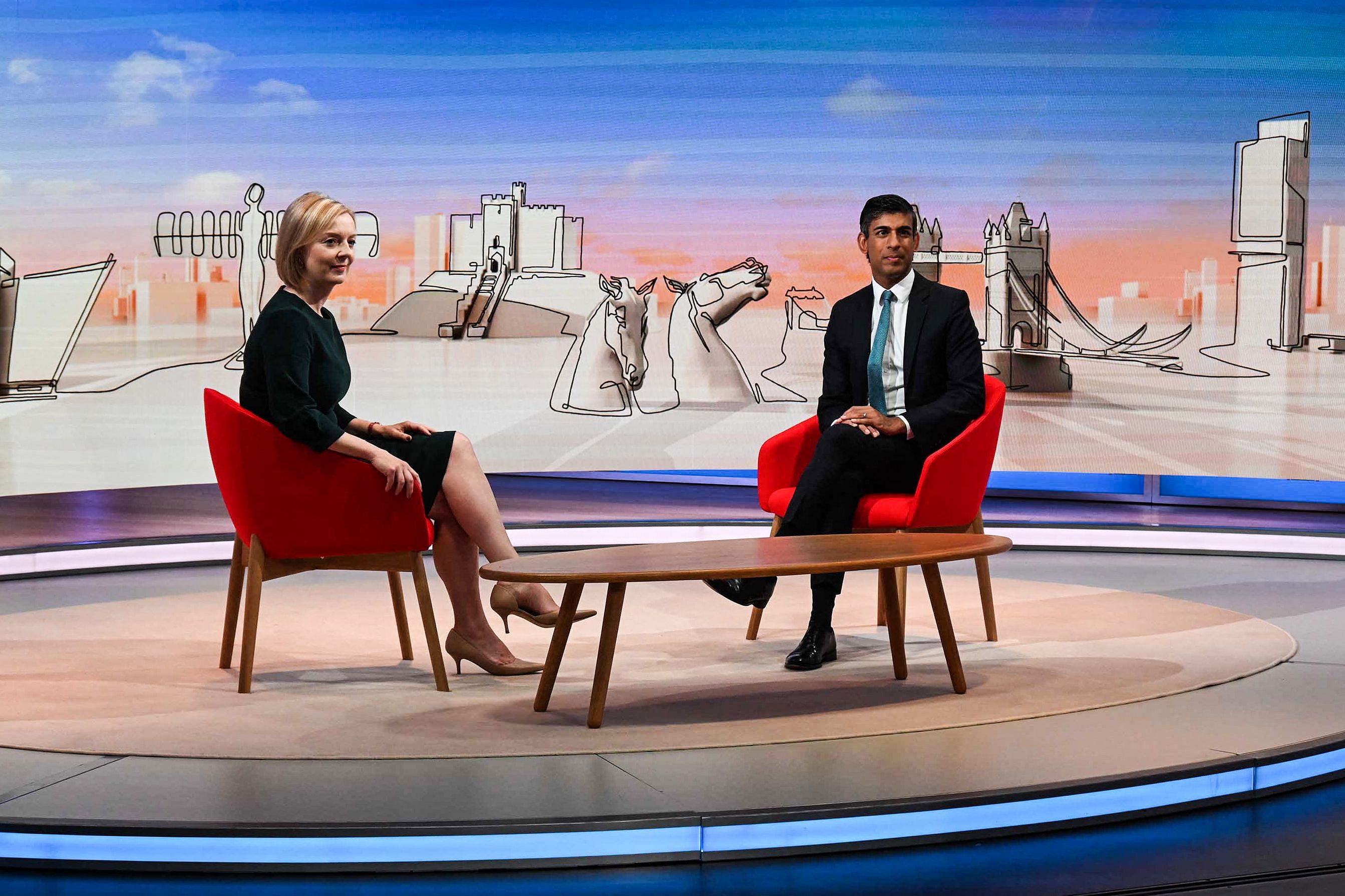
The UK will learn Monday who will be its next prime minister, with Liz Truss the favourite to succeed Boris Johnson and take charge as the country battles a spiralling cost-of-living crisis.
The result will be announced at 12:30 pm (1130 GMT), after foreign minister Truss and her rival, former finance minister Rishi Sunak, spent the summer rallying support among the Conservative Party members who cast the final vote.
If she wins, Truss will become the UK's third female prime minister following Theresa May and Margaret Thatcher.
The 47-year-old has consistently been ahead of 42-year-old Sunak in polling among the estimated 200,000 Tory members eligible to vote.
The leadership contest began in July after Johnson announced his resignation following a slew of scandals and resignations from his government.
Postal and online voting closed Friday after eight weeks of campaigning that Truss described to the BBC as "the longest job interview in history".
The vote may not reflect general public opinion, however.
A YouGov poll in late August found 52 per cent thought Truss would make a "poor" or "terrible" prime minister.
Forty-three per cent said they did not trust her "at all" to deal with the burning issue of the rise in the cost of living.
Whoever emerges as winner faces "the worst in-tray for a new prime minister since Thatcher", The Sunday Times wrote.
The UK is gripped by its worst cost-of-living crisis in generations, with inflation soaring into double digits and energy prices shooting up on the back of Russia's war in Ukraine.
Millions say that with bills set to rise by 80 per cent from October -- and even higher from January -- they face a painful choice between eating and heating this winter, according to surveys.
"If I'm elected prime minister, I will act immediately on bills and on energy supply," Truss told the BBC on Sunday, while declining to give details.
"Within one week I will make sure there is an announcement on how we are going to deal with the issue," she added.
Truss has campaigned on a promise to slash taxes and prioritise economic growth, just as Britain is tipped to enter recession later this year.
She said Sunday she would "within a month present a full plan for how we are going to reduce taxes" and "get the British economy going".
Sunak has vowed further government support to help people pay their energy bills and said curbing inflation would be his priority, attacking Truss's tax-slashing plans as reckless.
"Helping people with the cost of living and energy bills comes above everything else that I might like to do," he told the BBC on Sunday.
"We shouldn't rule anything out. I mean, we're facing a genuine emergency. I think anyone pretending that that isn't the situation isn't being straight with the country," he said.
Polls show public support for an early general election and the Conservatives face a growing challenge to retain their 12-year grip on power.
Truss became foreign minister a year ago after holding a series of ministerial posts in departments including education, international trade and justice.
She began her political journey as a teenage member of the centrist Liberal Democrats before switching to the right-wing Conservatives.
In 2016, she campaigned for the UK to remain in the European Union but quickly switched allegiance when Britons backed Brexit.
Her dress sense and love of photo opportunities -- posing in a tank in Estonia and wearing a fur hat in Moscow -- have earned her comparisons to Tory icon Thatcher.
Her sometimes stiff style has become visibly more relaxed and allies have sought to soften her image, revealing her love of karaoke and socialising.
The announcement Monday by Conservative Party officials of who will take over the leadership sets in motion a chain of events.
On Tuesday, Johnson will deliver a farewell speech at Downing Street.
He will then formally tender his resignation to Queen Elizabeth II, after which she will appoint his successor in a so-called kissing of hands ceremony.
For the first time in her reign, the 96-year-old monarch will appoint the prime minister at her Scottish retreat, Balmoral, rather than at Buckingham Palace in London.
This comes as the queen has suffered mobility problems and been forced to cancel a number of public engagements.
The next prime minister will be the 15th since the queen took the throne.